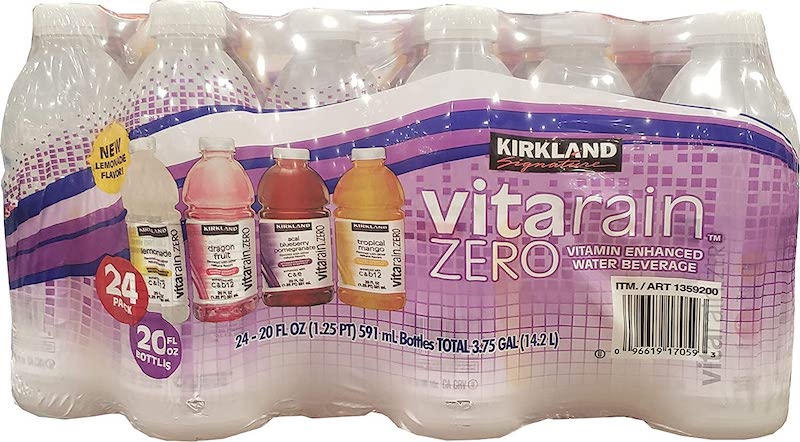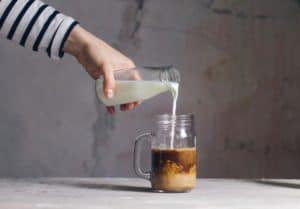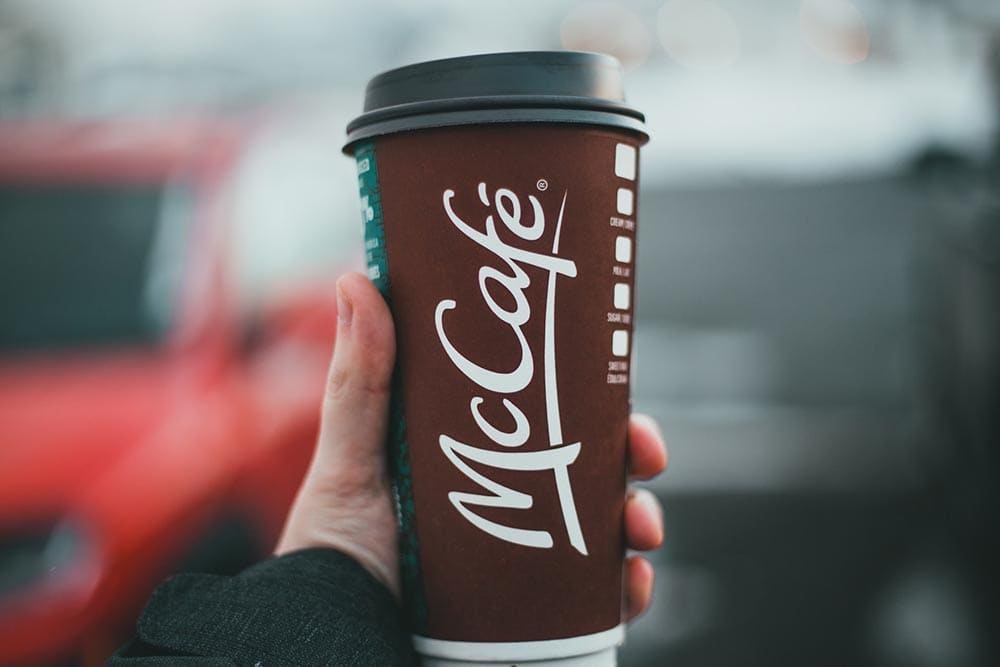
Many people visit McDonald’s regularly for breakfast and morning coffee. Those watching their caffeine intake will need to know how much caffeine is in these beverages, so they don’t exceed their limit. Keep reading as we look at the large coffee and the other sizes to see how much caffeine they contain. We will also compare it to other popular beverages and discuss how much caffeine is safe in general.
The short answer is that a large McDonald’s coffee contains 185 mg of caffeine.
Caffeine in McDonald’s Large Coffee
The large 21-ounce McDonald’s coffee contains 185 milligrams (mg) of caffeine, which is fairly high and works out to about 8.8 mg per ounce. Therefore, the small 12-ounce coffee will have about 106 mg of caffeine, and the medium coffee will have around 141 mg. However, it’s important to remember that the brewing method, water temperature, and other factors can impact the caffeine level, and it can vary significantly from one restaurant to the next or even one day to the next.
| Coffee Size | Caffeine Content |
| 12 ounces | 106 mg |
| 16 ounces | 141 mg |
| 21 ounces | 185 mg |
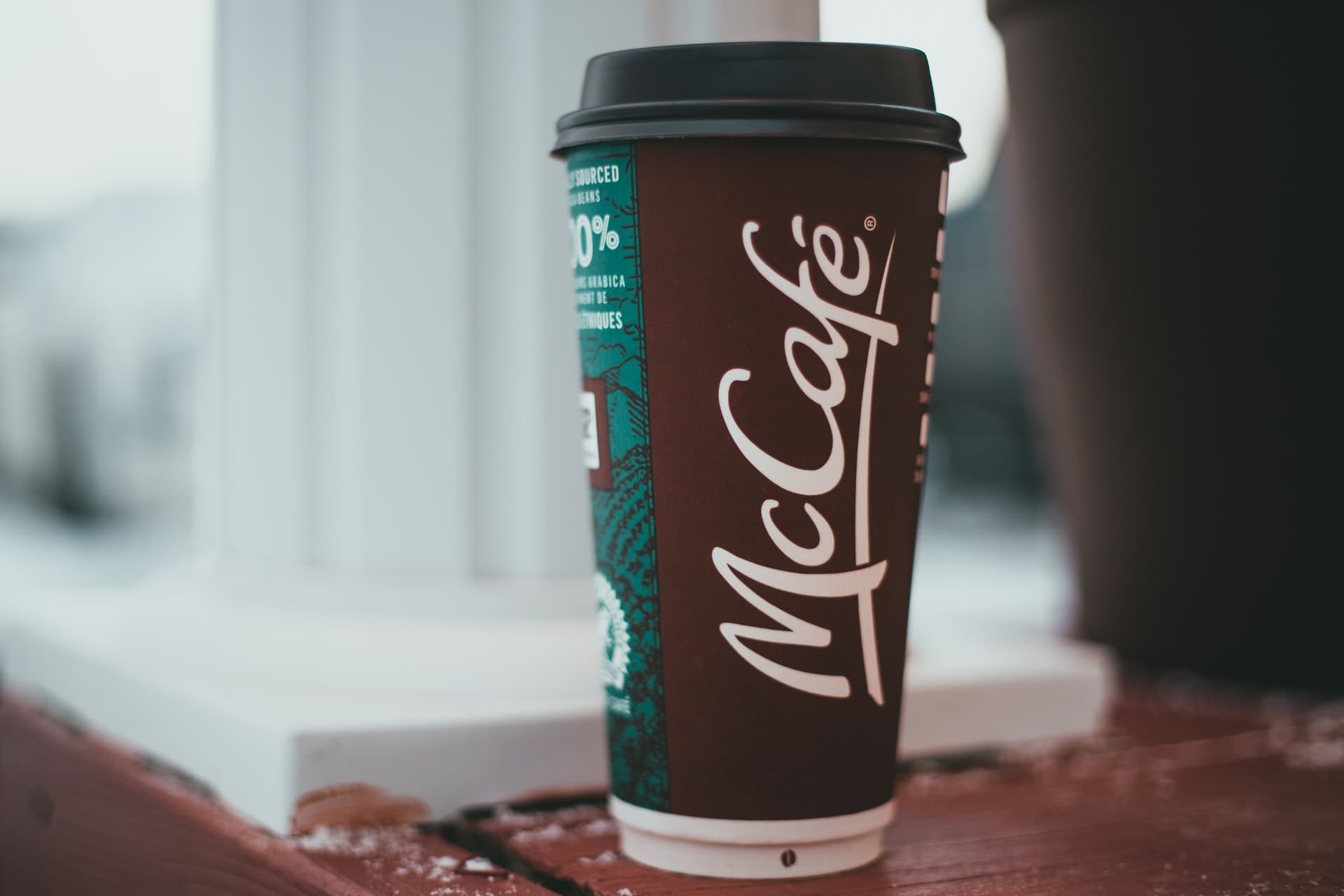
How Does the Caffeine in McDonald’s Coffee Compare to Other Beverages?
Coffee & Tea
The average caffeine content in a morning 8-ounce coffee is usually 90–140 milligrams, so it’s about the same, even though a McDonald’s small coffee is bigger than the average-sized cup. Black tea tends to have about half the caffeine of coffee at 47 mg per 8-ounce cup, and green tea cuts in half again with 25 mg of caffeine in an 8-ounce serving. Decaf coffee tends to have 97% less caffeine than regular coffee, and a typical cup will have less than 5 mg. Espresso is the best way to get caffeine in a small package, and each 1-ounce shot contains about 64 mg of caffeine.
Soda & Energy Drinks
Most soda brands have 30–70 mg of caffeine per 12-ounce can. Energy drinks can contain much more caffeine, with many brands having 160–300 mg of caffeine. Some products, like the 5-Hour Energy Shot, contain 200 mg of caffeine in a tiny 1.93-ounce package.
| Beverage | Serving Size in Ounces | Caffeine Content in Milligrams |
| 5 Hour Energy | 1.93 | 200 |
| Espresso | 1 | 64 |
| Energy Drinks | 16 | 160–300 |
| McDonald’s Large Coffee | 21 | 185 |
| Home-Brew Coffee | 8 | 90–140 |
| Black Tea | 8 | 47–90 |
| Green Tea | 8 | 25 |
| Soda | 12 | 30–70 |
| Decaf Coffee | 8 | <5 |
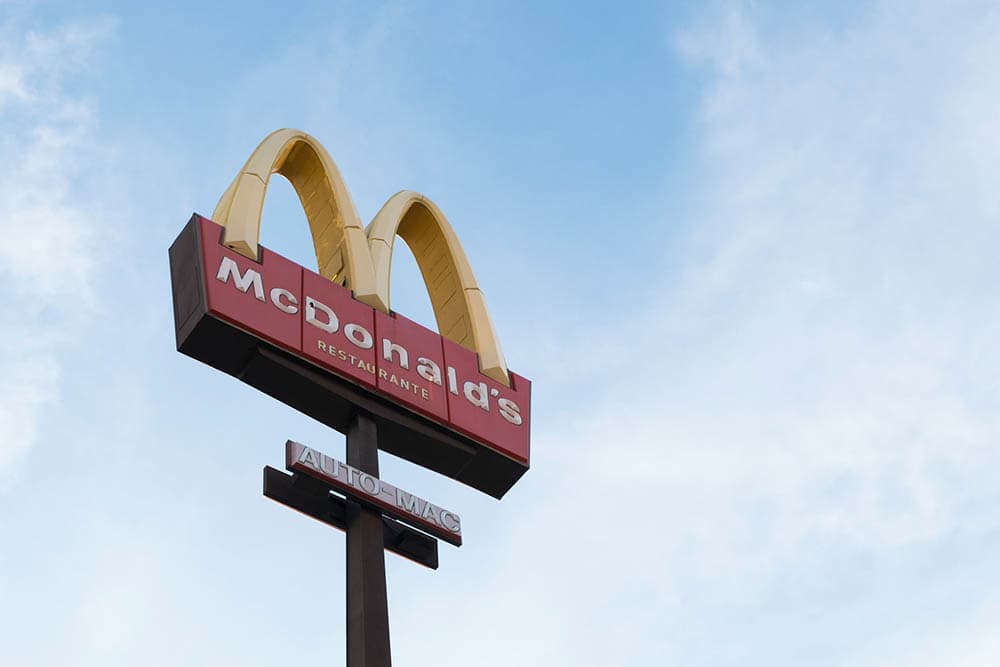
How Much Caffeine Is Safe?
Most experts recommend limiting your daily consumption of caffeine to no more than 400 mg daily. Regularly consuming more than that can lead to feelings of anxiety and nervousness. It’s also common to have difficulty sleeping, and many people become irritable. Long-term excess can lead to high blood pressure, cardiovascular issues, and kidney and bladder stones.
Why Does Coffee Always Keep Me Up?
Caffeine usually starts affecting your body as soon as 15 minutes after you consume it. However, it can take 10 hours or more to leave your body, depending on how much you consume. Six hours later, you can still have half the caffeine in your system. If you consume coffee with dinner, there is a good chance that you will have a significant amount of caffeine in your system at bedtime, which could be keeping you awake. Try consuming the caffeine earlier in the day or skipping it altogether.
Summary
A large McDonald’s coffee contains about 185 mg of caffeine, meaning you can safely consume two per day and get a large amount at once. Even though it contains the same amount of caffeine as home-brew coffee, the portion size is much larger than what most people typically get at home. However, as long as you set caffeine limits, McDonald’s coffee is a tasty and safe way to get the energy that you need to tackle your daily tasks.
Featured Image Credit: Erik Mclean, Unsplash






